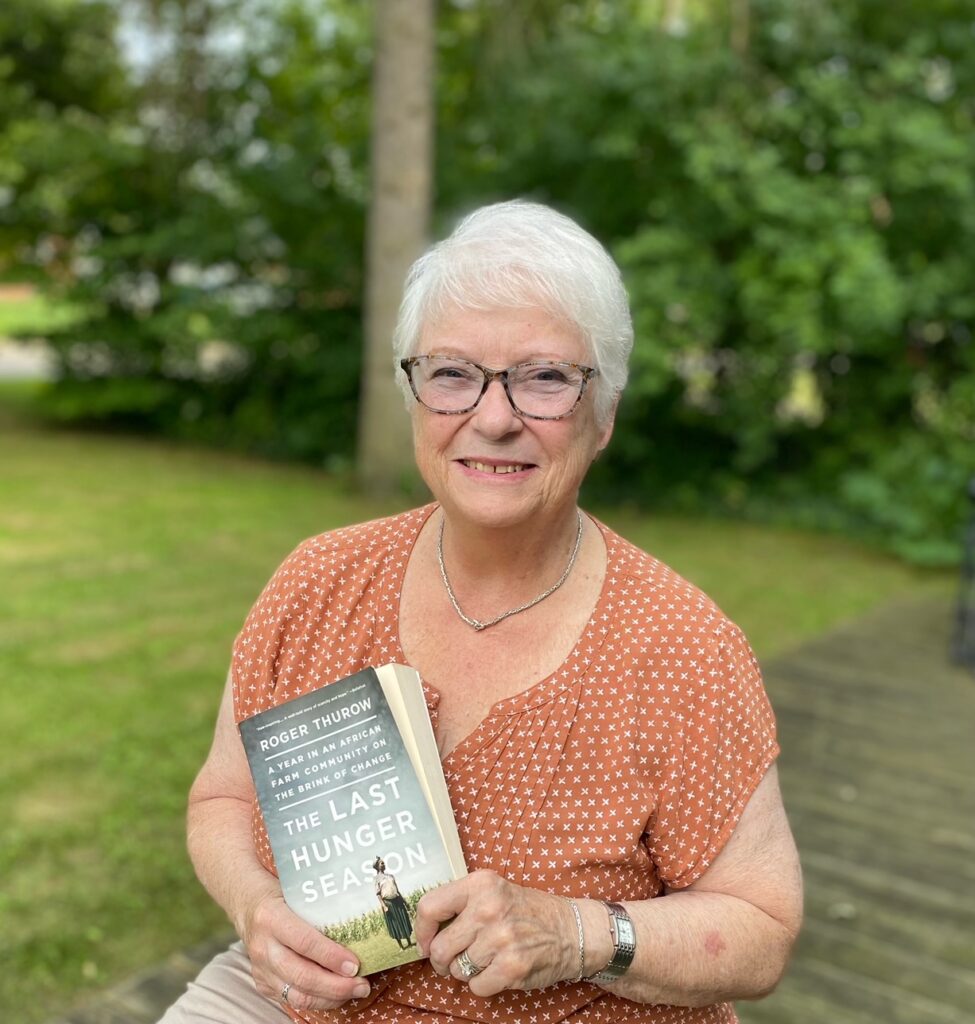Book Review by Beryl McHenry, long-time supporter of iZōsh International

The Last Hunger Season, by Roger Thurow, is a brilliantly constructed book about the glaring consequences of traditional agricultural practices in Kenya, and their effect on the families whose livelihoods depend on smallholder farms. Most smallholder farmers in Kenya are women. The work is backbreaking with yields less than a quarter of the yields of their counterparts in other countries.
Throughout the book, Thurow follows the lives of four Kenyan families, weaving their stories into a narrative that highlights the inadequacies of governmental policies and very limited educational opportunities. Readers are shown the realities of malnourishment, impossible manual labor and the hopelessness of the people in beautiful but often painful detail. For example, the death of a family’s calf whose sale was to provide money for educational fees means the family may not eat adequately for months. To this family, education is more important than food, Thurow’s narrative points out.
One of the main characters of the book, Leonida, joins with her neighbors to take advantage of a new enterprise called the One Acre Fund. It is January of 2011 in Kenya when the neighbors band together to join the organization’s training. The goal of One Acre Fund is to help families rise above poverty by providing seeds and training in how to plant the crops, departing from the practices their ancestors used a century ago. They provide instruction on improving the quality of seed, tools, soil nutrition, grain storage, grain transport, establishing credit, etc. The details of how these tasks were accomplished in the past, before newer practices were introduced and took their place, is astonishing. With traditional agriculture practices, there was always an expected “hunger season,” referring to the length of time between planting and harvest when everyone must expect to be hungry. It could last for one month up to nine months, depending upon the inevitable catastrophes, the arrival of the rain, or how much of the harvested grain could be held back from sales to feed the family during this period. All of this has made life for smallholder farmers in Kenya completely unpredictable.
Leonida and her neighbors determine that they will change their lives by taking advantage of the new social program, which presents a number of dilemmas to be solved. Reading the book, we find ourselves caught up in their problem-solving, then are much relieved to learn that the first season, in 2011, yielded a significantly better harvest than the previous year. Leonida declares that they have begun their exodus “from misery to Canaan.”
The author’s credentials include reporting for the Wall Street Journal for thirty years and being senior fellow for global agriculture and food policy at the Chicago Council on Global Affairs, along with authoring many books and articles on the subject of global hunger. His work in The Last Hunger Season gives a very readable picture of the continuing food crisis in Africa, as well as a hopeful picture of what can be done to improve the situation for the future.
